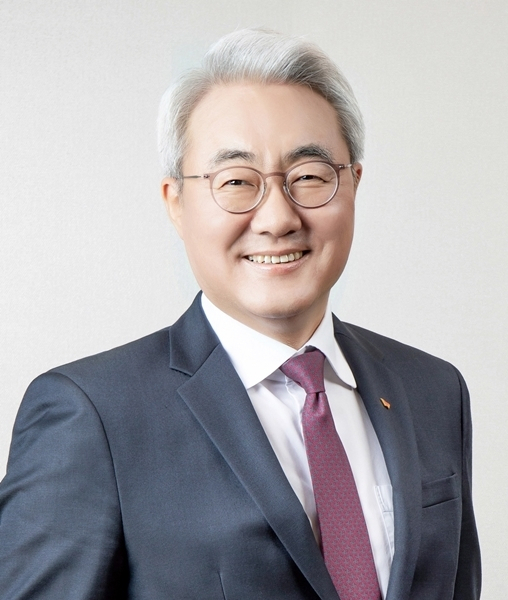What next after LG-SK battery dispute end?
SKI’s US battery biz salvaged after dramatic patch-up with LGES, but challenges remain
By Kim Byung-wookPublished : April 12, 2021 - 16:27

The dramatic reconciliation between archrivals LG Energy Solution and SK Innovation has allowed the latter to salvage its two electric vehicle battery factories in the US state of Georgia and supply batteries to Volkswagen and Ford as planned. But further challenges lie ahead, industry analysts said Monday.
The two-year dispute between LG Energy Solution and SK Innovation over battery technologies jeopardized the operations of the Georgia plant.
This battery supply chain risk motivated major automaker clients to develop their own batteries. Volkswagen announced last month that it would internalize battery production and gradually switch to prismatic battery cells from the current pouch-type battery cells.
“SKI only manufactures pouch-type batteries, so the company has to find a solution when its importance shrinks in VW’s battery supply chain in the future. This will undermine SKI’s bargaining power when negotiating supply deals with other automakers,” said Hyundai Motor Securities analyst Kang Dong-jin.
Kang predicted that SK Innovation’s battery business would see limited growth for two reasons. First, the company is not in the energy storage systems business. Second, as a latecomer to the battery business, it offers batteries to automaker clients at cheaper prices than competitors LG Energy Solution and Samsung SDI.
Meanwhile, other analysts said it’s encouraging that SK Innovation has managed to secure the US market and stay relevant to President Joe Biden’s EV plan.
“Chinese battery firms are evolving in terms of technology and new players are showing up in Europe. For Korean battery manufacturers, securing the US EV market is the key to stay competitive,” said Han Byung-wha, an analyst at Eugene Investment & Securities.
According to Han, it’s difficult for Chinese battery companies to advance into the US market due to political and diplomatic circumstances. They are also no match for the new European battery companies, which are busy stabilizing their facilities in the region.
“At least by 2025, the US EV market will be led by Korean battery makers, as most of the new EV models to compete against Tesla will be powered by Korean batteries,” Han said.
According to Han, of Biden’s vast infrastructure plan worth $174 billion, $100 billion is allocated for EV subsidies. If Biden offers $10,000 per EV, $100 billion would be enough for 10 million units. The number of EVs in the US, which stood at 330,000 units last year, is expected to rise to 490,000 this year and 999,000 by 2023.
The presidents of both the US and South Korea welcomed the last-minute patch-up between the two rivals.
On Monday, President Moon Jae-in said in a Facebook post that “the settlement between LGES and SKI verifies that competition based on mutual trust is conducive for each of the firms’ long-term interests and Korea’s interest.”
The comments followed a statement from Washington, in which Biden called the settlement “a win for American workers and the American auto industry.”
On Sunday, SK Innovation agreed to pay 2 trillion won ($1.78 billion), half in cash and half in royalties, for stealing trade secrets from LG Energy Solution. In return, both firms agreed to drop all charges against each other and promised not to file any more lawsuits for the next 10 years.
According to analysts, SK Innovation will have no problem paying up. The 2 trillion won it owes under the settlement accounts for just 1.4 percent of its total battery order backlog, Eugene Investment & Securities data suggests.
SK Innovation currently has multiple ways to shore up funds. It can secure 1.25 trillion won by selling off its stakes in two Peruvian gas fields. It can also raise an additional 1 trillion won to 1.3 trillion won by taking its wholly owned subsidiary SK IE Technology public in May and selling shares. SK IE Technology’s value is estimated at 7.4 trillion won. At the same time, SK Innovation is planning to liquidate almost half of its stakes in two petrochemical subsidiaries -- SK Lubricants and SK Global Chemical.
SK Innovation is expected to pay 1 trillion won in cash over the next two years. Royalties will surge in 2025, when battery supplies to clients peak.
On Monday, SK Innovation shares soared as high as 282,000 won from Friday’s closing price of 230,000 won.
SK Innovation President and CEO Kim Jun sent an email to staff and executives shortly after the settlement was announced, encouraging them to accelerate in the battery business as uncertainties in the US have been resolved, according to industry sources Monday.
“At a time when the electric vehicle and battery markets are growing fast, a decision was made that instead of being entangled in consuming legal procedures, concentrating on the intrinsic strengths of our business would be more helpful to the competitiveness of the company and the nation’s industry as a whole. Let’s have confidence in our technology and product and show what we can do through greater growth,” Kim said.
By Kim Byung-wook (kbw@heraldcorp.com)








![[Graphic News] More Koreans say they plan long-distance trips this year](http://res.heraldm.com/phpwas/restmb_idxmake.php?idx=644&simg=/content/image/2024/04/17/20240417050828_0.gif&u=)
![[KH Explains] Hyundai's full hybrid edge to pay off amid slow transition to pure EVs](http://res.heraldm.com/phpwas/restmb_idxmake.php?idx=644&simg=/content/image/2024/04/18/20240418050645_0.jpg&u=20240419100350)





![[From the Scene] Monks, Buddhists hail return of remains of Buddhas](http://res.heraldm.com/phpwas/restmb_idxmake.php?idx=652&simg=/content/image/2024/04/19/20240419050617_0.jpg&u=20240419175937)

![[KH Explains] Hyundai's full hybrid edge to pay off amid slow transition to pure EVs](http://res.heraldm.com/phpwas/restmb_idxmake.php?idx=652&simg=/content/image/2024/04/18/20240418050645_0.jpg&u=20240419100350)

![[Today’s K-pop] Illit drops debut single remix](http://res.heraldm.com/phpwas/restmb_idxmake.php?idx=642&simg=/content/image/2024/04/19/20240419050612_0.jpg&u=)